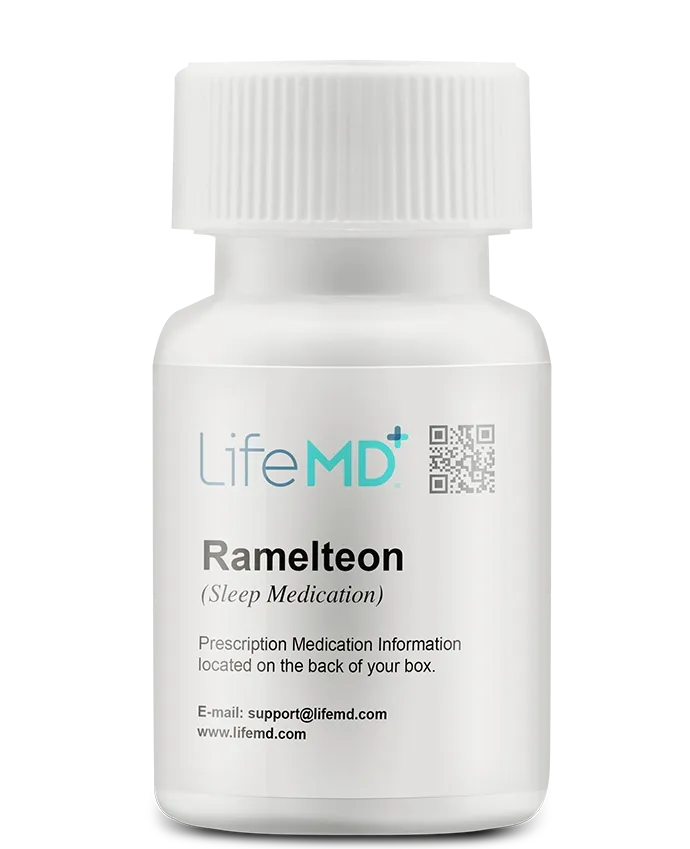Is Sleep Apnea Genetic?
What is Sleep Apnea?
Sleep apnea is a type of sleep disorder that occurs when breathing becomes interrupted during sleep.
This disorder results in the throat muscles failing to keep the airway open, causing one to wake up briefly and gasp for air.
These pauses in breathing caused by sleep apnea can last from a few seconds to several minutes, which can be distressing. These episodes can occur multiple times throughout the night.
Tired of restless nights?
Don’t let insomnia hold you back. Take the first step towards better sleep with LifeMD.


Central sleep apnea (CSA)
Central sleep apnea occurs when the brain fails to send the right signals to the muscles that control breathing. This can lead to paused or shallow breathing during sleep.
Unlike obstructive sleep apnea, this isn’t caused by a physical blockage but rather by a lack of communication between the brain and the muscles in the airway.
Obstructive sleep apnea (OSA)
Obstructive sleep apnea occurs when the airway is partially or completely blocked during sleep due to the relaxation of the upper airway muscles.
The relaxation of the muscles in the throat and tongue can lead to pauses in breathing which can decrease the levels of oxygen in the blood.
Obstructive sleep apnea is the least common of these two sleep disorders and is usually associated with medical conditions such as heart failure, and neurological disorders.
Sleep Apnea Symptoms
Obstructive and central sleep apnea have the same symptoms, so you would need to see a doctor to determine which condition you have.
Common sleep apnea symptoms include:
Loud snoring
Excessive daytime sleepiness
Morning headaches
Irritability
Key Point: Sleep Apnea Is a Major Risk Factor For Other Diseases
If sleep apnea is left untreated, it can lead to serious health issues, including:
- High blood pressure
- Heart disease
- Stroke
What Causes Sleep Apnea?
Sleep-disordered breathing (SDB) can be caused by several factors which differ for each type of sleep apnea.
However, it’s worth noting that smoking, alcohol consumption, and a sedentary lifestyle are risk factors for both types of sleep apnea.
Causes of central sleep apnea
Heart failure: People with this condition may develop central sleep apnea as the buildup of fluid in the lungs can interfere with breathing
Neurological disorders: Disorders like Parkinson’s disease or stroke can affect the respiratory control center
High altitude: Sleeping at high altitudes can decrease oxygen levels in the blood, which can trigger central sleep apnea
Certain medications: Opioids or benzodiazepines, for example, can affect the respiratory system
Causes of obstructive sleep apnea
Excess weight: Those who are obese are at risk of developing obstructive sleep apnea as excess fat around the neck and throat puts pressure on the airway
Gender: Men are more likely to develop obstructive sleep apnea than women, although there is an increased risk for women after menopause
Aging: As one ages, the throat muscles may weaken, resulting in OSA
Alcohol consumption and use of sedatives: These substances can relax the throat muscles, making it easier for the airway to collapse
Is Sleep Apnea Hereditary?
There is evidence to suggest that genetic risk factors may cause sleep apnea. Variations in the gene called PHOX2B may put you at a higher risk for sleep apnea.
If you have a family member with this disorder, there may be genetic underpinnings to your sleep apnea. For example, first-degree relatives of people with sleep apnea are at a higher risk of developing the disorder than others.
Treating Sleep Apnea
If you suspect that you have sleep apnea, it’s important to see a health care professional who can treat the disorder.
Your doctor will record your family health history and run various tests to determine if you have any risk factors for sleep apnea.
There are also other treatments available for those living with sleep apnea, including:
Lifestyle changes: Certain lifestyle factors can cause or worsen sleep apnea. Maintaining a healthy weight and diet, for example, can decrease the risk of obstructive sleep apnea
Use of a continuous positive airway pressure (CPAP) machine: CPAP therapy involves using a machine to keep the airway open during sleep
Consulting a sleep specialist: You may need to see a sleep specialist if you have severe symptoms so that they can make an accurate sleep apnea diagnosis
Visiting a sleep clinic: If you have severe sleep apnea, you may be required to spend time at a clinic so they can conduct a sleep study to diagnose your disorder
Good sleep hygiene: Sleep health depends on your nighttime routine and how much caffeine you drink before bed, for example. Developing good sleep hygiene may help ease your sleep apnea symptoms
Where Can I Learn More About Getting Better Sleep?
Don’t let insomnia control your nights. LifeMD-affiliated physicians can prescribe FDA-approved, non-addictive medications to help you fall asleep faster. Start your treatment today.














